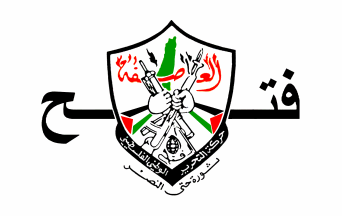 |
| President Abbas of the Palestinian Authority accepts framed map that shows Palestine extending from the Jordan River to the Mediterranean Sea, with Israel erased. More here. |
A recent poll by a Palestinian research firm found
that 88% of Palestinians favour violence as the way forward in their conflict
with Israel (see here).
This should surprise no one. The Palestinians can win make believe victories at
the UN, but on the ground, the diplomatic route is futile, since Israel cannot
give what the Palestinians want.
The
last time anything happened in the peace process was in 2008 when then
Israeli Prime Minister Ehud Olmert offered the Palestinians a comprehensive
peace settlement. The offer included a Palestinian capital in Jerusalem
and international control over the holy sites.
Territorially, Olmert offered the equivalent of 100% of the West Bank and Gaza, with a corridor connecting them in exchange
for the slivers of land occupied by Israeli settlements.
Abbas said no thanks and he made
no counter offer.
Why? Because the Palestinians aren’t
willing to concede the Jewish claim to their own homeland in Israel. Hamas
makes no secret of its desire to wipe Israel off the map. More “moderate”
Palestinians insist on the “right of return.” That is, they claim that the four
million grandchildren of refugees originally created by Arab wars against
Israel should be allowed to move into Israel and thereby turn it into a
Palestinian state.
Obviously peace requires the
Palestinians to give up on this idea of eliminating Israel, and in 2008, peaceniks
all threw up our hands in frustration at Abbas’s stubbornness.
In retrospect, we should breathe a
sigh of relief. For it’s evident the Palestinians wouldn’t have kept the peace,
and since the UN voted to give the Palestinians standing as a non-member state,
it’s now clear that when the Palestinians break a treaty, the world supports
them.
Indeed is there any part of their interim
treaty with Israel that the Palestinians have kept?
The Oslo Accords state that
neither side can unilaterally try to change the status quo, that the
Palestinians cannot, for example, apply to the UN to be recognized as a state. But
the Palestinian did just that, and the UN overwhelmingly supported them.
The Oslo Accords require the
Palestinians to forego violence, yet since they were signed, the Palestinians
have conducted thousands of terrorist attacks against Israel that have resulted
in three wars: the Second Intifadah and the Hamas wars of Dec 2008 / Jan 2009 and of November 2012.
The Oslo Accords forbid incitement. But terrorists
are the great heroes of Palestinian society. Schools, summer camps, soccer
teams and public squares get named in honour of terrorists.
Two days after winning their historic vote for
statehood at the UN, the official Palestinian
Authority radio station, broadcast songs glorifying suicide bombings against
Israel. They included these lyrics:
We are bombs... the enemies were beheaded... Grieve not, Mother, shed no tears over my torn flesh... heroic men who mock death... We praised the Lord, and set out for Martyrdom. We strapped ourselves with explosives, and trusted in Allah... Onward men, on the roads to glory.
Is there any wonder Palestinians
are so enamoured of violence? It’s actively promoted from the top down and from
the bottom up.
The Oslo Accords state that
parties who pursue their aims through unlawful means (such as terrorism) or
that are racist cannot run in Palestinian elections. The clause was included
specifically to exclude Hamas, which has launched thousands of terrorist
attacks against Israel and openly proclaims its desire to kill Jews.
Canada, Japan, the U.S., Israel,
and the European Union have all declared Hamas a terrorist group. Even the UN
has declared it a racist organization. (More here.) Yet the
international community didn’t object when Hamas ran in the 2006 Palestinian
elections.
Strangely, it didn’t occur to
people that democracy can’t thrive where political parties have private armies.
In retrospect it should have surprised no one that the Palestinian elections
were followed by a short, sharp civil war that left the West Bank ruled by the
Palestinian Authority dominated by Fatah and Gaza ruled by Hamas.
Because the Oslo Accords were
ignored, Israel now has a terrorist enclave sitting on its eastern border. Moreover,
even supposing it wanted to, since the Palestinian Authority no longer controls
Gaza, it cannot end the conflict with Israel.
As the Palestinians cannot
implement a peace treaty, don’t keep their treaties, and receive the world’s
support when they break a treaty, we need to recognize that the peace process
is dead and that it’s time for the peace movement to change direction.
The obstacle to peace is the
Palestinian “narrative.” Israel has long recognized the Palestinian right to a
state of their own, but no Palestinian political party recognizes the right of
the Jews to their own state.
Instead, the Palestinians –
including supposed moderates – claim all of Israel as rightfully theirs, deny
any Jewish connection to the land, and paint Israel as an evil entity that
ought to be wiped off the map.
In addressing the UN on the
historic occasion of the vote for Palestinian non-member status, President Abbas
accused Israel of racism, apartheid,
colonialism, aggression, murder
and ethnic cleansing.
So long as this
remains the Palestinian narrative, peace will remain a fantasy, no matter what
pieces of paper might be signed.
This piece also appeared on Harry's Place blog in Britain, and because the comments at Harry's Place get deleted after a week, I've preserved them here:












